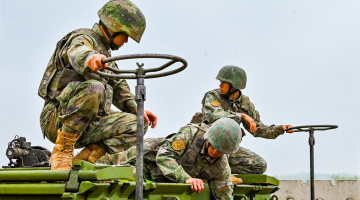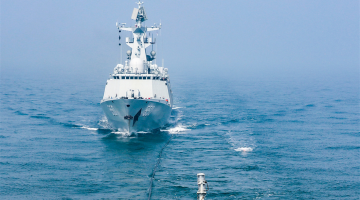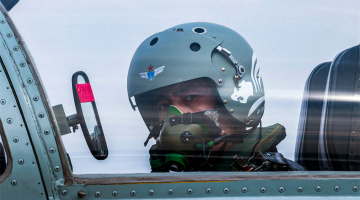The Vatican has reportedly asked two bishops in China to step down in favor of Beijing-approved ones, triggering concerns from critics that the Holy See is "selling out" the Catholic Church in China. In a sharply worded statement, the Vatican rebuked such concerns, saying it was "surprising and regrettable" that some people in the church were "fostering confusion and controversy."
Diplomatic ties between China and the Vatican have been severed since 1951, as the Vatican has maintained diplomatic ties with Taiwan. In China, Catholics are split between an underground community whose bishops were appointed by the Vatican but considered illegal by the Chinese government and the Chinese Catholic Patriotic Association run by State-appointed bishops.
The major stumbling block in China-Vatican ties is the question of which side has ultimate authority over the appointment of bishops: the Chinese government or the Holy See? Since 2014, talks over the issue have been underway, yet no major breakthrough has been achieved so far.
At a press briefing in December, Chinese foreign ministry spokesman Geng Shuang said that "China's position on China-Vatican relations is consistent and clear." China attaches great importance to the independence of religious groups from external forces. Because China sticks to its principles that does not mean there's no room for negotiations with the Vatican on the issue of ordination of bishops.
Both China and the Vatican know that a full reconciliation needs time. If it goes too fast, there will be resistance on both sides. Analysts believe there is concern among Chinese leaders that a deal would give the Vatican too powerful a foothold on the mainland. For the Vatican side, the latest development, in which it seeks to drop two underground bishops in China, has raised fears of appeasement within the Holy See. Despite the concern, China has been patiently working on a solution to address the issue with the Vatican. In a similar approach, Pope Francis is leading a determined push to alter the ties between the two sides. In 2013, he sent a message to Xi Jinping congratulating him on having become Chinese president. This signals the Vatican's goodwill toward a thaw in bilateral ties. The wariness of Taiwan authorities will not impede the positive momentum between China and the Vatican.
China's governance of religion has grown increasingly mature and its handling of Catholic affairs fits the interests of believers. The two sides should also keep in mind that international forces may try to sabotage the negotiating process by spreading rumors that are harmful to Sino-Vatican ties.









